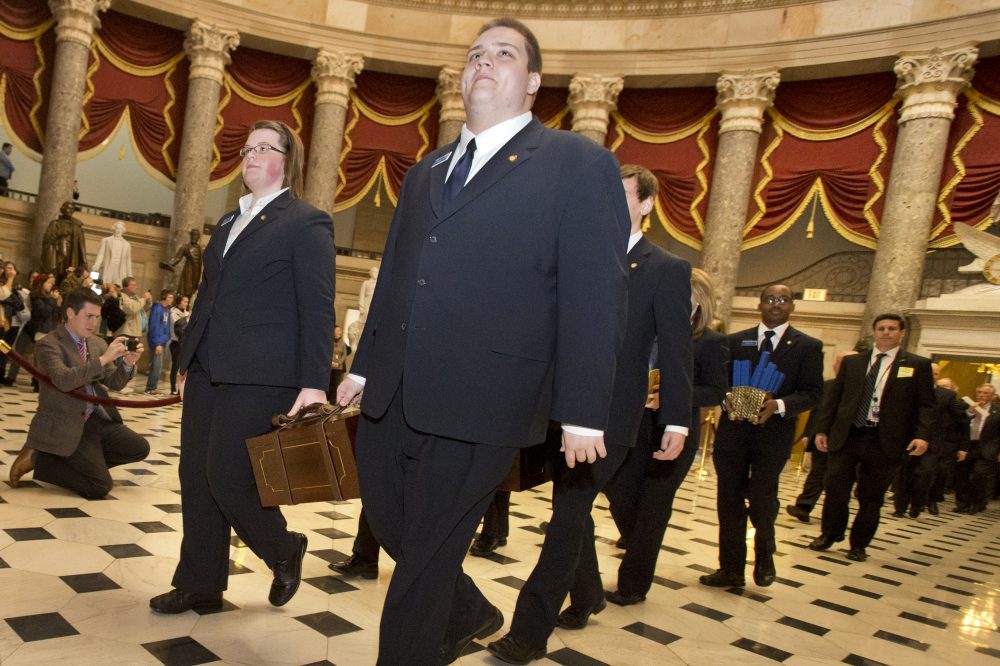Advertisement
Amid Calls For Change, What Are Electoral College Alternatives?
Resume
Retiring California Sen. Barbara Boxer filed legislation Tuesday that would amend the Constitution to abolish the Electoral College.
Boxer is one of several Democrats calling for a change to the way presidents are elected as it becomes more certain that Hillary Clinton won the popular vote, but lost the presidency.
Here & Now's Jeremy Hobson speaks with Andrew Rudalevige (@rudalev), professor of government at Bowdoin College, about the pros and cons of a different election system.
Interview Highlights
On the history of attempting to change the election system
"From pretty early on, there have been more than 700 resolutions introduced in Congress to try to change, or straight-out repeal it. So this joins a long line of attempts to shift the way that our presidents are chosen."
On the cons of the Electoral College
"The most basic problem is that different people's votes count unequally, and so, if you start from the premise that 'one person, one vote' is the only legitimate way to select the only legitimate winner, then you do have a pretty strong problem of democratic theory here — the person who gets the most votes can lose."
On the pros of the Electoral College
"The basic idea is that the American Republic, rather than democracy... it's a democratic republic, it's a representative democracy that seeks to build consensus across very many coalitions. And you see lots of structures in the Constitution that protect the rights of minorities. And so the Electoral College — even though, if we go back to the Constitutional Convention, it's certainly a compromise — it's not a random compromise. It's one that fits into a federal system of separated and checks powers that has some nervousness about majorities and the wisdom of crowds."
"If you start from the premise that 'one person, one vote' is the only legitimate way to select the only legitimate winner, then you do have a pretty strong problem of democratic theory here — the person who gets the most votes can lose."
Andrew Rudalevige
On potential alternatives
"The most popular proposal that's out there right now is called the National Popular Vote Compact. And basically each of the states in that compact promises that whoever wins the national popular vote, it will select electors who will vote for that winner, rather than the person who won...
This does run the risk, well, two risks, maybe, that people who are concerned with changing the Electoral College point out. One is of course this 'faithless elector' problem. The other of course is that plurality elections have their own issues. One reason that some political theorists like the two-party system — even though it does quite overtly limit voter choice — is that it provides stability and it provides, at least in theory, the push of the candidates towards the median voter, towards moderation and towards the middle. So if you had a system where you could win in a five-person field with 21, 22, 25 percent of the vote, is it OK if somebody wins with 25 percent? Should we have a run-off election? Maine just adopted a ranked-choice voting proposal for state elections. Is that something that would be worked in? So there are other questions that are raised by the reforms, and some people are nervous that those possibly unintended consequences have not been discussed enough."
This segment aired on November 16, 2016.